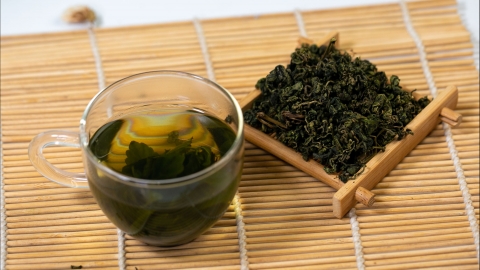Can Ophiopogon japonicus and Gynostemma pentaphyllum be steeped together in water for consumption?
Generally speaking, Ophiopogon Root (Mai Dong) and Gynostemma (Jiao Gu Lan) can be consumed together as a tea, but moderation is important. Detailed explanation is as follows:

Ophiopogon Root is slightly cold in nature, with a sweet and bitter taste, and acts on the heart, lung, and stomach meridians. It has the functions of nourishing yin, promoting body fluid production, moistening the lungs, and clearing the heart. Gynostemma is neutral in nature and also has a sweet and bitter taste; it functions to invigorate qi, strengthen the spleen, relieve coughing, resolve phlegm, clear heat, and detoxify. When used together, these two herbs can help alleviate symptoms such as dry cough due to lung dryness, internal heat with excessive thirst, and can regulate body constitution characterized by yin deficiency and internal heat. They may improve poor appetite and indigestion caused by weakness of the spleen and stomach, and are suitable for individuals with stomach yin deficiency. Additionally, they have a calming and sleep-inducing effect for symptoms such as insomnia with vivid dreams and anxiety, making them appropriate for individuals suffering from insomnia and palpitations due to heart yin deficiency.
However, it is important to consume them in moderation. Long-term and excessive consumption of Ophiopogon Root and Gynostemma may weaken the digestive functions of the spleen and stomach, potentially causing discomfort such as abdominal bloating and diarrhea. Individuals with a cold deficiency pattern of the spleen and stomach, pregnant women, women during menstruation, and those with allergic constitutions should avoid using these herbs, as their cold nature may worsen symptoms such as abdominal pain and diarrhea. Furthermore, Gynostemma's blood-activating properties may induce miscarriage or menstrual irregularities.
Before consumption, it is advisable to consult a qualified physician to determine whether these herbs are suitable based on individual constitution and medical condition. It is also recommended to maintain dietary diversity and balance in daily eating habits, avoiding excessive intake of any single food or nutrient.





